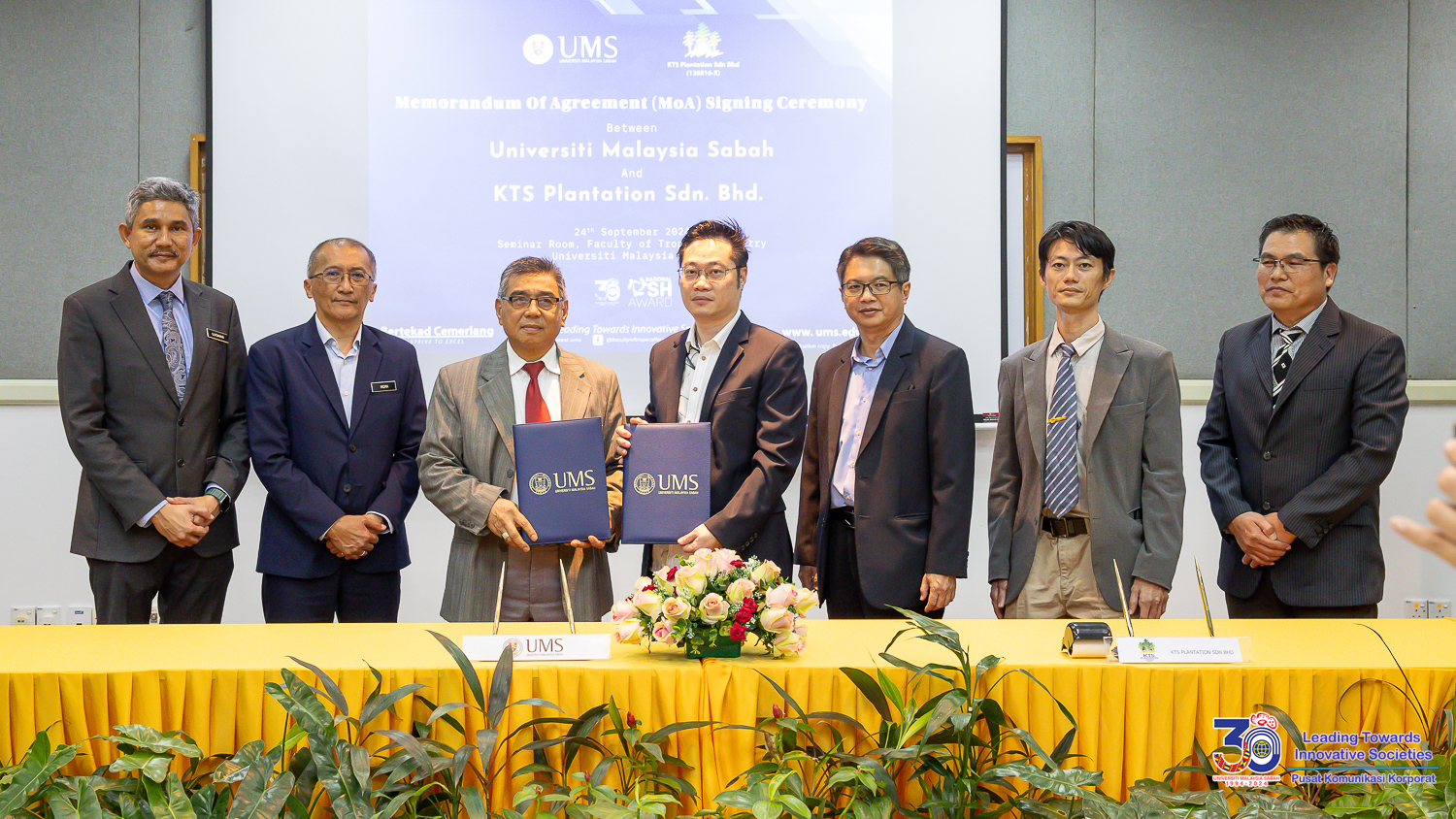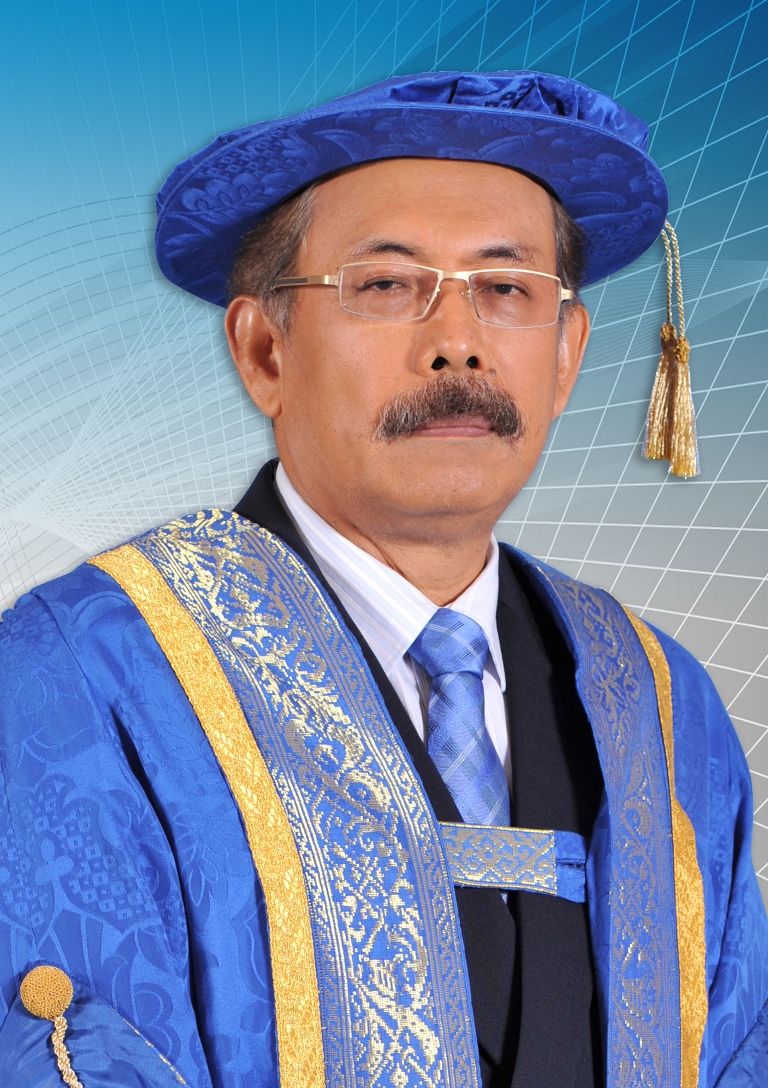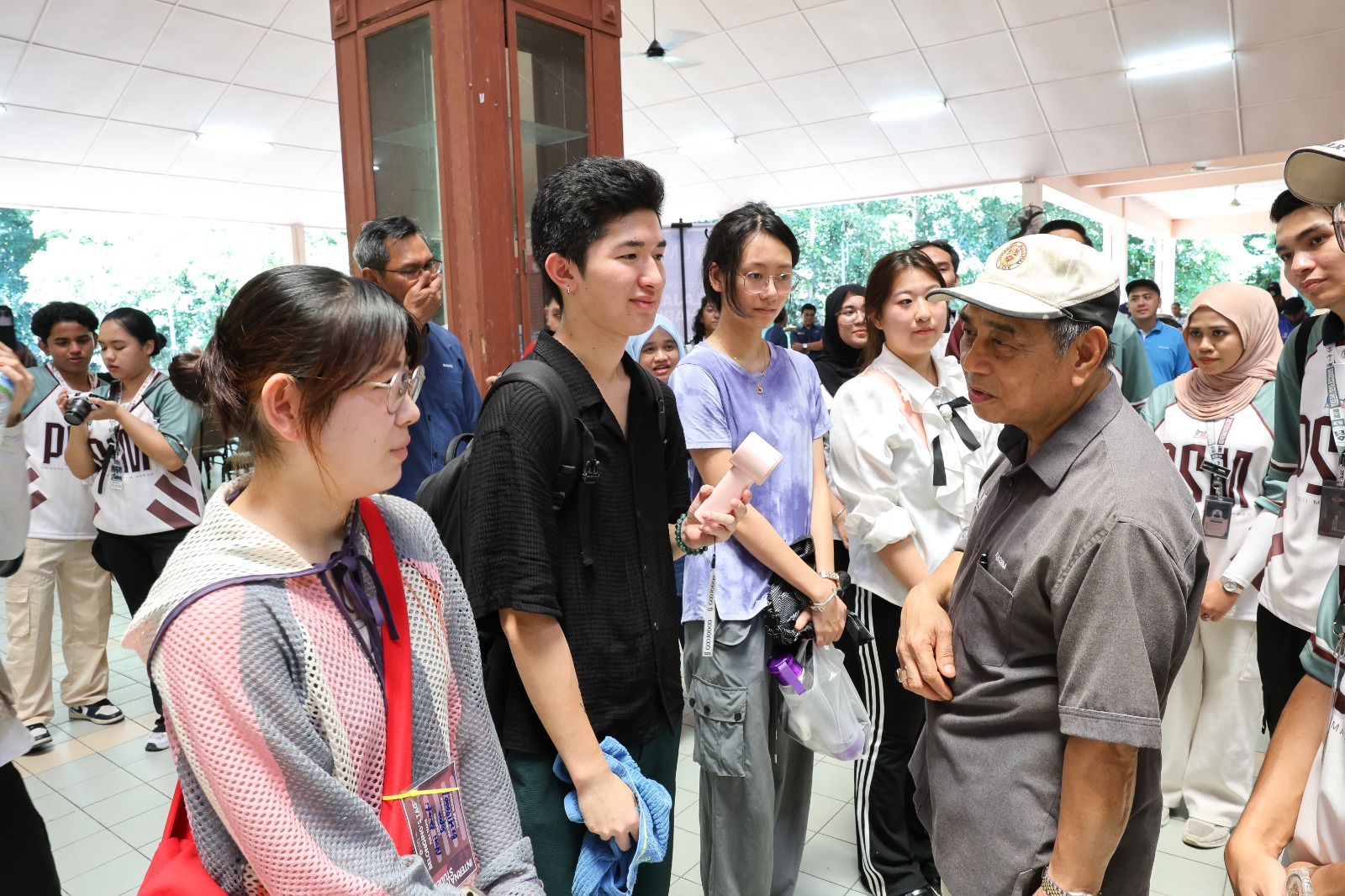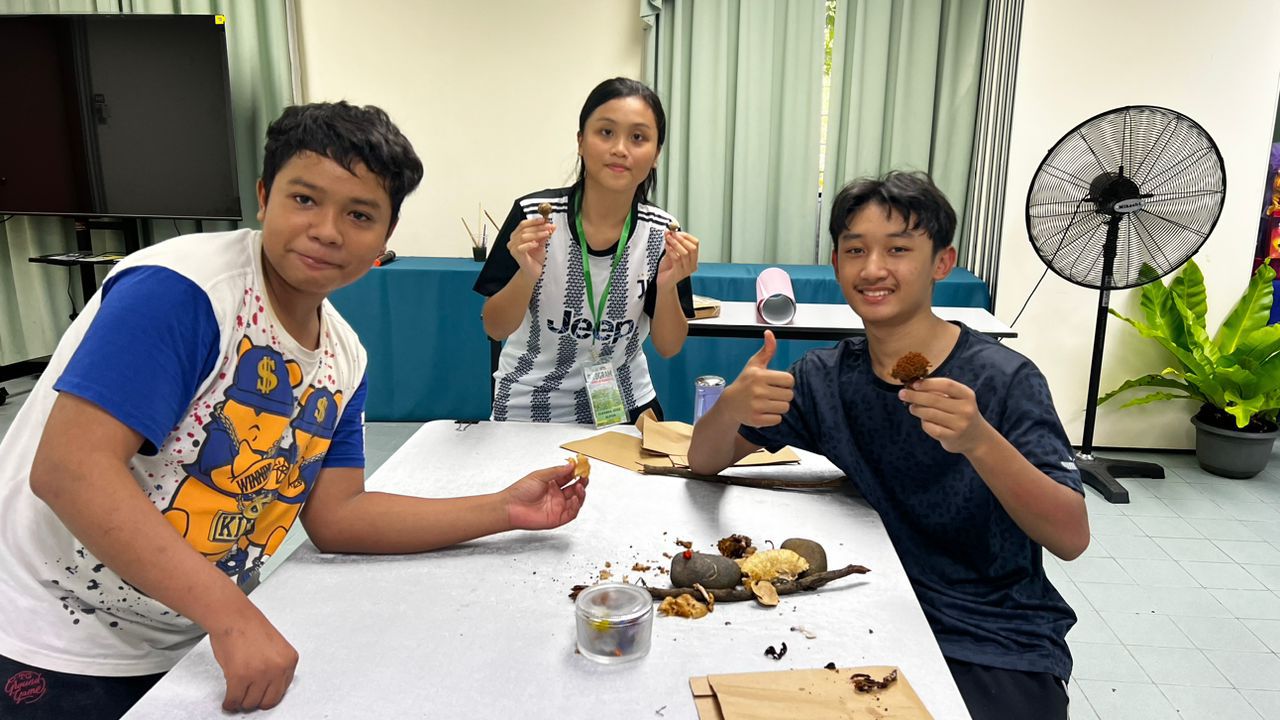 KTS Plantation (KTSP) and Universiti Malaysia Sabah (UMS) signed the second Memorandum of Agreement (MoA) on Tuesday, to enhance the existing forest planning.
KTS Plantation (KTSP) and Universiti Malaysia Sabah (UMS) signed the second Memorandum of Agreement (MoA) on Tuesday, to enhance the existing forest planning.
The MoA was initiated after the establishment of academic chair by KTSP called Kursi Pengurusan Hutan Asli Lestari at the Faculty of Tropical Forestry (FPT).
According to director of KTSP, Diana Lau Kor Ping, the objectives of the chair are in line with the state forest policy and KTSP vision, to manage FMU 19B Segaliud Lokan Forest Reserve in a sustainable manner.
“This chair is in line with the state forest policy and KTSP vision in managing Segaliud Lokan Forest Reserve – managing forest in a sustainable manner.
“From the synergy between research institute and forest industry, which is represented by UMS and KTSP, I believe this is an innovative strategy to tap into the potential of competitive impact from industry-university research collaboration as we continue to challenge ourselves to be role models for others in the forestry industry to meet common challenges ahead.
“During planning for this chair, I was made to understand that among the focus research are studies on forest planning at landscape level of which will introduce implementation of drone and GIS technologies to enhance current forest planning.
“Also, forest rehabilitation will be the highlighted component of the researches. We believe that these research areas are critical for achieving the long-term objective of sustainable forest management in natural forest at Segaliud Lokan Forest Reserve,” she said.
Diana’s speech was read by another director of KTSP, Ting Jack Hui.
The MoA was signed between Ting and Vice Chancellor of UMS, Prof Datuk Dr Kasim Mansor.
The signing was witnessed by the Registrar of UMS, Luqman Ridha Anwar and KTSP director Wong Kee Mee.
Meanwhile during his speech, Kasim said the MoA signing represents a formal partnership and a symbol of shared vision, dedication and resolve to advance common goals in research and development in support of sustainable forest management.
“This partnership is a testament to the strength of collaboration between academia and industry. It highlights the importance of working together to bridge the gap between theoretical knowledge and practical application.
“Research and development in sustainable forest management are essential in supporting Sustainable Development Goal 15, which aims to protect, restore and promote sustainable use of terrestrial ecosystems, sustainably manage forests, combat desertification, and halt and reverse land degradation and biodiversity loss.
“Tropical forests are biologically diverse terrestrial ecosystems that have significant roles in supporting many endemic flora and fauna, reducing the risk of natural disasters, mitigating climate change, clean water and air supply, and providing natural resources and livelihood to local communities,” he said.
Kasim further elaborated that the collaboration between UMS and KTSP was formally initiated with the signing of an LoI in November 2015.
This was followed by the signing of the first tripartite Memorandum of Understanding (MoU) between UMS, KTSP and the Sabah Forestry Department (SFD) during the Heart of Borneo Conference in November 2016.
Since then, various collaborative academic and research activities have been conducted between the parties.
“From 2016 to 2022, the achievements include acquiring a research grant and academic activities such as the Forestry Camp for undergraduate forestry students in 2016 and 2017, final year projects, and industrial training at Segaliud Lokan Forest Reserve, Sandakan.
“In July 2018, UMS and KTSP entered into the first MoA for undertaking a collaborative research grant on ‘Forestry studies in KTS Plantation Segaliud Lokan: mineralogical availabilities, nature tourism, silviculture and morpho-phenology of Shorea leprosula,” added Kasim.
According to him, the research was recently completed, which produced four journal papers, six conference papers, a coffee table book, 17 undergraduate thesis, four MSc. Thesis and one PhD. dissertation.
“Today, UMS and KTSP will enter into an MoA to establish a Natural Sustainable Forest Management Chair that aims to establish methods in Timber Resource Assessment, Timber Harvesting Plan and Forest Rehabilitation.
“KTSP has committed RM2 million to the establishment of the chair and will award excellent forestry graduates during the convocation ceremony,” he added.
Also present at the MoA signing ceremony were Deputy Chief Conservator of Forests from the Sabah Forestry Department, Indra Purwandita Sunjoto; Deputy Dean (Research and Innovation) from UMS Faculty of Tropical Forestry, Dr Wilson Wong Vui Chiong and Plantation and Planning Division Manager of KTSP, Paul Liau.






 KTS Plantation (KTSP) and Universiti Malaysia Sabah (UMS) signed the second Memorandum of Agreement (MoA) on Tuesday, to enhance the existing forest planning.
KTS Plantation (KTSP) and Universiti Malaysia Sabah (UMS) signed the second Memorandum of Agreement (MoA) on Tuesday, to enhance the existing forest planning. A significant breakthrough in the study of fungi has been achieved with the discovery of Phaeoclavulina cokeri in UMS Hill, Sabah, Malaysia, marking the first recorded instance of this species in the region.
A significant breakthrough in the study of fungi has been achieved with the discovery of Phaeoclavulina cokeri in UMS Hill, Sabah, Malaysia, marking the first recorded instance of this species in the region.